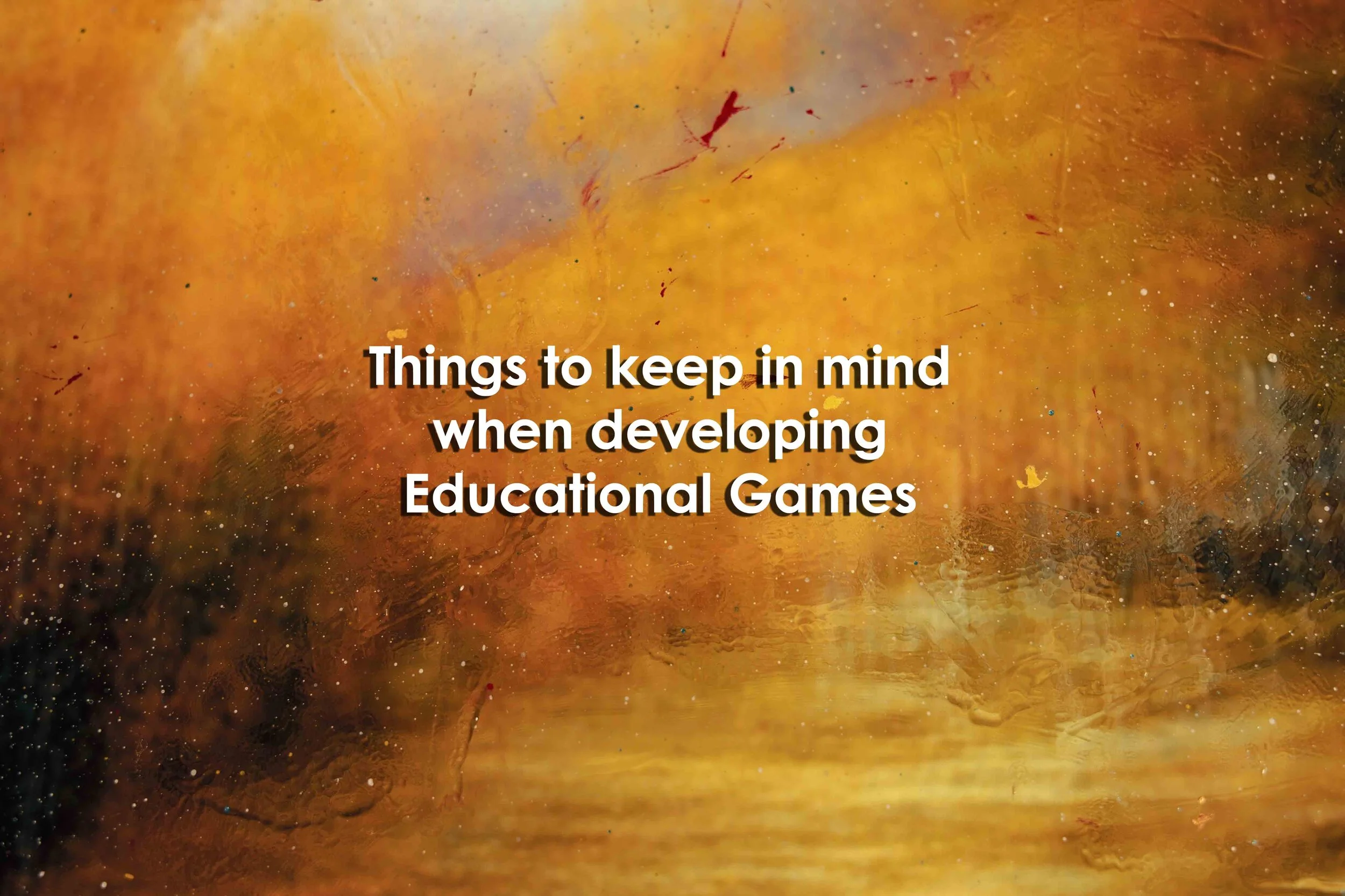Things to keep in mind when developing Educational Games
Things to keep in mind when developing Educational Games
Things to keep in mind when developing Educational Games
By Thomas Ackland
April 17, 2020
Summary
There are many things that need to be taken into account when developing games that are intended for educational purposes.
Whilst every product requires a different approach depending on things such as your team size, the target audience and the content of the game, these are some general points of consideration that could be useful to keep in mind during development.
Teachers being unable to properly benefit from these games due to either their inability to properly utilise games within a classroom setting or their attitudes towards games don't support their use as a learning tool.
The Educational Dimension, which revolves around the concerns of the educational value, teaching effectiveness and efficiency of results of games used as teaching tools as well as the training that teachers will require in order to adopt the new technologies and working habits they may be unfamiliar with in order to effectively use games as a teaching tool.
Improving the access of educational videogames in existing and future educational resource repositories by encouraging teachers to both search for and assess the effectiveness of games to be used within the educational sector in a similar fashion to how other educational materials are currently registered.
Creating communities centred around educational games, allowing educators to share their knowledge and resources with others within the educational sector.
The Technological dimension focuses primarily on the excessive costs of developing educational games, the lack of effective support tools that allow effective monitoring of the results of player activity and the capability of schools being able to provide suitable devices that can run educational games.
The lines of work necessary for the problems in this dimension to be overcome aim to reduce the technological barriers that increase the difficulty of developing educational games and deploying them within the educational sector, whilst also making it easier for teachers to use the tools that they are given.
Reducing the technological requirements of deploying games within the educational sector, striking a balance between having games that aren't graphically intensive but are also attractive to the player.
Whilst these points may not be entirely relevant to every development project, they are important things to consider when tackling the problem that educational games face and hopefully we'll start seeing more games being used within the educational sector without the social stigma that often follows them, leading to a more engaging and fun learning experience for everyone involved.
Reference
Ackland, T. (2020, April 17). Things to keep in mind when developing Educational Games. Retrieved July 04, 2020, from https://www.ludogogy.co.uk/article/things-to-keep-in-mind-when-developing-educational-games/


